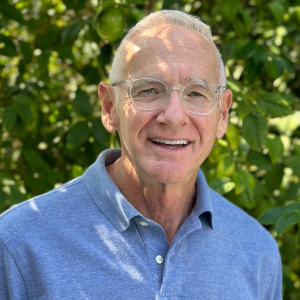Forgotten stories of antimalarial drug resistance and its relation to AMR in Africa

My name is Olayinka Fakorede. As a Nigerian-trained medical doctor and someone who has experienced the challenges of malaria firsthand, I can personally relate to the looming threat of malaria resistance in Nigeria and other countries where malaria is endemic.
Malaria is an infectious disease transmitted by mosquitoes which are parasites. Malaria is treated with antimalarial medications, otherwise known as antiparasitics. Antiparasitics fall under the greater umbrella of antimicrobial medicines.
Growing up, whenever illness struck, my parents would swiftly whisk me off to the hospital, and often, it was a bout of malaria that had me bedridden. Over time, I became all too familiar with the recurring symptoms and subsequent need for antimalarial treatment.
As the years passed, something troubling began to happen. First-line medications, once a trusted ally in my battle, lost their effect. I was experiencing resistance to the antimalarials. I later learned first-line medications were also losing their effect on the broader population. I wasn’t the only one.
Unknowingly contributing to antimalarial drug resistance
At one point, I was old enough to purchase medications on my own, but I was also navigating the demanding journey of medical school. My days were a whirlwind of lectures, practicals, and the myriad responsibilities that came with being part of national and international medical student associations. Traveling for conferences were not uncommon either and stress became a constant companion.
As I soon discovered, stress can trigger the reactivation of dormant malaria parasites in the liver, making me a recurrent victim of the disease. In my haste to regain my health and keep up with my demanding schedule, I began to overuse antimalarial medications. Unknown to me, I was unwittingly contributing to the development of malarial resistance.
I had just returned from a conference, having taken two different antimalarial medications over two weeks, and remained unwell. While complications from malaria are less common in adults from endemic regions due to acquired immunity, this persistent illness was a stark reminder of the evolving threat.
Desperation led me to a second-line medication, and finally, I began to recover.
Knowledge empowered me
This experience was a profound wake-up call. I realised that I couldn’t continue down this path, and I couldn’t bear to see others suffer the same fate. Armed with knowledge about antimalarial resistance and antimicrobial resistance (AMR), I embarked on a personal mission to advocate for change.
My international position in medical associations gave me a platform to raise awareness about AMR and antimalarial resistance, and I seized the opportunity.
But did this ordeal end my battles with malaria? Unfortunately, not. However, I learned to manage my stress better and implemented various preventive measures. I surrounded myself with insecticides, insect repellents, and insecticide-treated nets, yet malaria would still find its way into my life.
Being a medical doctor undoubtedly gave me an advantage. I recognised the need for testing and confirmation of malaria, refusing to jump to conclusions and self-medicate. Instead, I engaged with colleagues who could admit me to the hospital and administer the antimalarial treatments appropriately.
My story, though personal, is just one among millions of Nigerians who have unknowingly misused antimalarial drugs due to inadequate awareness about AMR, lax government regulations, and poor access to diagnostics. I’ve witnessed patients battling antimalarial resistance, and my medical knowledge has allowed me to assist them effectively.

Antimalarial drug resistance is part of antimicrobial resistance (AMR)
Antimalarial resistance is considered a part of antimicrobial resistance (AMR) because it’s a special type of resistance, but specifically against medications used to treat or prevent the parasites (mosquitoes) that cause malaria.
Just like how bacteria can become resistant to antibiotics, the parasites that cause malaria can become resistant to the medicines used to fight them. This happens when these parasites change in a way that makes the medications less effective against them. So, just as we need to be careful with antibiotics to prevent the spread of resistant bacteria, we also need to watch out for antimalarial resistance to make sure the medications we use to fight this deadly disease keep working well.
Malaria remains a persistent burden in Nigeria and various parts of the world, affecting individuals regardless of their socio-economic status. The risk of mosquito bites and the disease’s relentless impact knows no boundaries, particularly affecting communities with limited resources.
Without effective antimalarials this deadly disease will claim thousands of lives.
As I continue to advocate for AMR awareness, my hope is that Nigeria will embrace comprehensive strategies to combat this growing threat, ensuring that medications for malaria remain effective. Through education, regulation, and accessible healthcare, we can secure a healthier future for all.
Disclaimer: This story is shared with the permission of the individual(s) involved and is intended for educational and awareness purposes only. It does not represent medical advice and should not be used as a substitute for consultation with qualified healthcare professionals. While we encourage you to share the story in its original format, all rights are reserved by The AMR Narrative. Please do not reproduce, modify, or use any part of this story without prior written consent from The AMR Narrative. To request permission, please contact us here.

Olayinka Fakorede
Olayinka Fakorede is a medical doctor from Nigeria with an interest in infectious disease and antimicrobial resistance. She has led youth organisations like the World Health Students’ Alliance (WHSA) to organise an Antimicrobial Resistance (AMR) Conference, as well as to write policy documents on control of infectious diseases and AMR and has also led AMR Advocacy Working Groups.
Olayinka is currently completing an MPH in Global Health at the Harvard T.H. Chan School of Public Health. Her goal is to continue strengthening global health systems to tackle infectious diseases and AMR.




